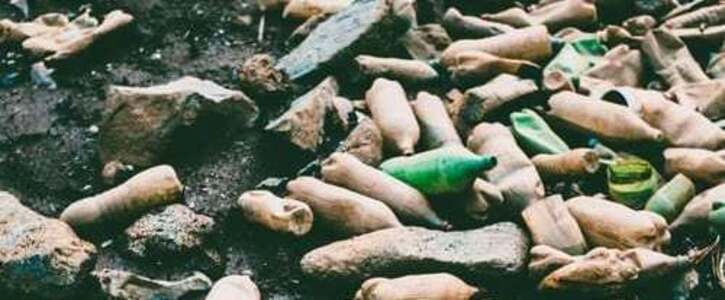50 signatures reached
To: James Quincey (Chairman and CEO of Coca-Cola), Ramon Laguarta (Chairman and CEO of PepsiCo), Alan Jope (CEO of Unilever), Ulf Mark Schneider (CEO of Nestle)
Coca-Cola, PepsiCo, Unilever and Nestle: Start Using Sustainable Packaging

New research has found that four companies -- Coca-Cola, PepsiCo, Unilever, and Nestle -- are responsible for half a million tons of plastic pollution being burned or dumped every year. Furthermore, the burning of this plastic waste creates emissions equivalent to 4.6 million tons of carbon dioxide - the same that would be produced annually by two million cars. (https://inews.co.uk/news/environment/plastic-pollution-coca-cola-nestle-pepsico-unilever-climate-change-2523347?fbclid=IwAR0PNgj-mFrKtkd8t3WYv2KHsnyq8VQD43kNdGvjzJMO_bPGHGm9E1T1h9E)
The time to take action about our global climate crisis is now. We call upon the people creating the pollution problem --the large beverage companies -- to help solve it. We believe that these four companies must stop using plastic packaging immediately, and begin using sustainable packaging options.
The time to take action about our global climate crisis is now. We call upon the people creating the pollution problem --the large beverage companies -- to help solve it. We believe that these four companies must stop using plastic packaging immediately, and begin using sustainable packaging options.
Why is this important?
Plastic bottles and bottle caps are the third and fourth most collected plastic trash in the Ocean Conservancy’s annual beach cleanups in 100 countries. Globally, more than a million plastic bottles are sold every single minute. In the U.S., only 30% of these bottles are recycled. In 2016 fewer than half the bottles bought worldwide were collected for recycling. (https://www.nationalgeographic.com/environment/2019/08/plastic-bottles/)
Because plastics are notoriously difficult to recycle for reuse, enormous efforts are being poured into finding ways to help break down plastics for recycling. A more impactful action would be to stop producing plastic packaging in the first place. If it's not produced, it can't pollute. More sustainable packaging alternatives (aluminum, glass) and even biodegradable solutions (bottles made from recycled paper; cans made from Poly-Lactic Acid (PLA) – a starch material extracted from corn -- which can become soil after 180 days in a commercial compost system) are available. (https://earth911.com/living-well-being/recycled-beverage-containers/) https://earth911.com/living-well-being/recycled-beverage-containers/) (https://www.ecoproducts.com/polylactic_acid_pla.html).
Consumers care about our environment, and demand action to reduce the plastic pollution that is harming it. Coca-Cola, PepsiCo, Unilever, Nestle: Be responsible corporate citizens and stop harming our environment. Change your packaging to non-plastic, sustainable options.
Because plastics are notoriously difficult to recycle for reuse, enormous efforts are being poured into finding ways to help break down plastics for recycling. A more impactful action would be to stop producing plastic packaging in the first place. If it's not produced, it can't pollute. More sustainable packaging alternatives (aluminum, glass) and even biodegradable solutions (bottles made from recycled paper; cans made from Poly-Lactic Acid (PLA) – a starch material extracted from corn -- which can become soil after 180 days in a commercial compost system) are available. (https://earth911.com/living-well-being/recycled-beverage-containers/) https://earth911.com/living-well-being/recycled-beverage-containers/) (https://www.ecoproducts.com/polylactic_acid_pla.html).
Consumers care about our environment, and demand action to reduce the plastic pollution that is harming it. Coca-Cola, PepsiCo, Unilever, Nestle: Be responsible corporate citizens and stop harming our environment. Change your packaging to non-plastic, sustainable options.
